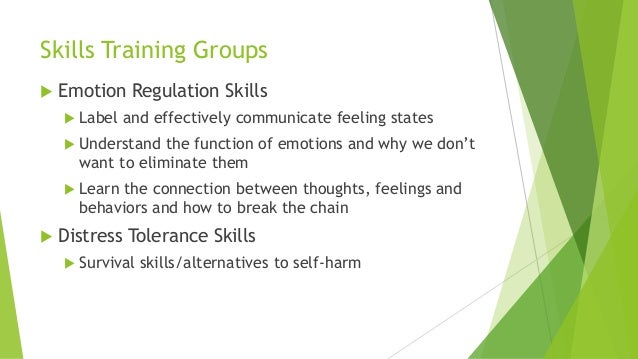Dialectical Behavior Therapy (DBT) focuses on teaching people strategies to help them live their best and most productive life. DBT is often used to help people with depression, anxiety, borderline personality disorders, addictions, eating disorder, and PTSD.
New Method Wellness, a premier dual diagnosis treatment center for drug and alcohol addiction, announces an Introduction to Dialectical Behavioral Therapy (DBT) training on Friday, June 22, 2018, and Saturday, June 23, from 9:00 am to 3:30 pm for both days. Dialectical Behavior Therapy (DBT) is a type of cognitive-behavioral therapy that focuses on the psychosocial aspects of therapy, emphasizing the importance of a collaborative relationship, support for the client, and the development of skills for dealing. Learn Dialectical Behavior Therapy (DBT) today: find your Dialectical Behavior Therapy (DBT) online course on Udemy. Life Coach Training Neuro-Linguistic Programming Mindfulness Personal Development Personal Transformation Meditation Life Purpose Neuroscience Coaching.
There are four core skill sets that you master to help you problem solve and deal with issues:
Dialectical Behavioral Therapy Definition

22 Edialectical Behavioral Training Programs

What Is Dialectical Behavioral Therapy

Dialectical Behavioral Therapy For Children
- Mindfulness - the core skill in DBT is being able to non-judgmentally observe yourself and your surroundings. You will become more aware of the physical and mental triggers that cause runaway emotions.
- Distress Tolerance - deal with painful situations. When you can't change the situation, learn how to tolerate it, accept it, and move forward.
- Emotion Regulation - learning to make your emotions work for you. Learn to recognize when an emotion is unproductive and change it into a more productive emotion.
- Interpersonal Skills - change the way you communicate so you get more out of your relationships. Learn to communicate what you want. Become comfortable saying no.
